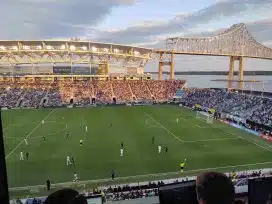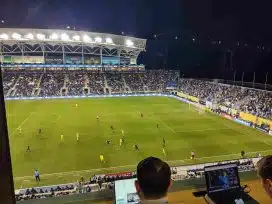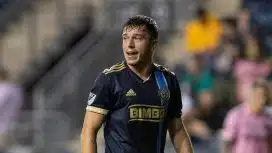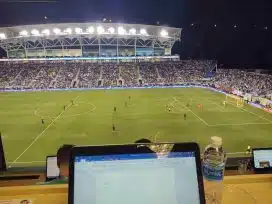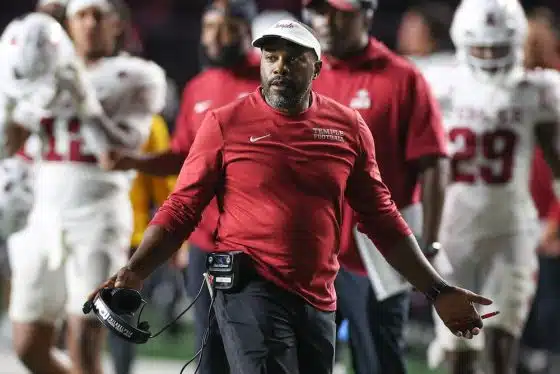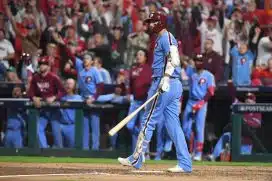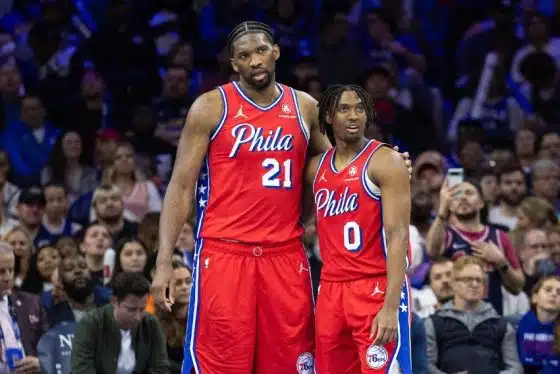Writer: Rob Riches
Happy 50th anniversary, Flyers!
Fifty years ago today, Ed Snider received a brief, yet important phone call as NHL owners wrapped up a series of meetings in New York City.
Courtesy of the NHL Expansion Committee boss Bill Jennings, it was about as brief a phone call as one can get.
"You're in."
And with that, professional ice hockey in Philadelphia was revived. The Philadelphia Flyers — though they did not have that name yet at the time — had the foundation laid for them to form a club. The NHL was set to undergo a rapid and unprecedented period of expansion (the likes of which certainly will never be duplicated again), and Philadelphia was one of the few cities that would get to capitalize on the opportunity.
Of course, there was still a lot of work that had to be done. In addition to naming the team, Snider, Jerry Wolman and their group still had to come up with the $2 million expansion fee — roughly $14.63 million today — as well as find a general manager, develop a staff and work with City of Philadelphia officials on building a stadium. Not exactly an easy feat to accomplish in the span of 21 months.
At the time, Snider was no stranger to the Philly sports scene. He had owned a seven-percent stake in the Eagles, while also serving as their vice president and treasurer. Wolman had bought the Eagles in 1963 from the investor conglomerate known as the "Happy Hundred," and assumed ownership duties with Snider and Snider's brother-in-law, Earl Foreman.
Philadelphia was still a three-team city. The Eagles were a shell of their former selves that won the NFL Championship six seasons prior, the Sixers were a respectable club featuring the imposing Wilt Chamberlain and the Phillies were still a club reeling from the infamous "Phold" that haunted them just over a year prior in 1964. Snider and his group were looking to add a fourth team to the mix, and provide the city with something else to look forward to.
Nearly four months after the "you're in," call, Wolman and then-Philadelphia Mayor James Tate broke ground on a site adjacent to John F. Kennedy Stadium at the intersection of Broad Street and Pattison Avenue. Construction on what would eventually be known as the Spectrum was completed in just over a year's time, and was ready to open just in time for the 1967-68 NHL season. Snider and Wolman had undergone the Herculean task of securing $12 million to finance the building, and narrowly pulled it off.
Well, the rest is history. The Flyers began play in the 1967-68 season, joining the "Second Six" expansion wave alongside the Minnesota North Stars, St. Louis Blues, Pittsburgh Penguins, Los Angeles Kings and California Seals.
Since then, the Flyers have gone on to become a storied franchise, establish a fearsome reputation, win two Stanley Cups, set a professional-sports record for longest unbeaten streak, host some generational talents, open a new stadium, build a foundation for the future and establish the NHL's third-best winning percentage of all-time (.576, with a 1,877-1,304-588 record). That's only a microscopic look at the team's history — our own Mike Watson does fantastic work every Sunday breaking down snippets from the team's illustrious history.
Snider also went on to oversee the team through all its rises and all its falls, and has gone on to become one of the NHL's most influential figures. He is an inductee of several Halls of Fame — the Hockey Hall of Fame, Philadelphia Jewish Sports Hall of Fame, Philadelphia Sports Hall of Fame and U.S. Hockey Hall of Fame. He helped provide the Flyers a development club when he oversaw the rise of the American League's Philadelphia Phantoms, which have since relocated to Glens Falls, N.Y. and Allentown, Pa., and has created the Ed Snider Youth Hockey Foundation for the betterment of inner-city youth.
Next season, the Flyers will be celebrating their 50th anniversary on the ice. The team may partake in an outdoor game and may even introduce new jerseys to celebrate the occasion, and will honor its heroes from the past while focusing on the next era of Flyers hockey. Surely, it will be a memorable season as the team looks back on its memorable history.
And it all started with a brief, yet important phone call 50 years ago today.
Rob Riches is a contributor to Flyerdelphia and Sports Talk Philly. Follow him on Twitter @Riches61
















